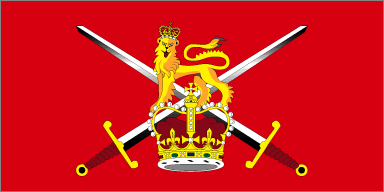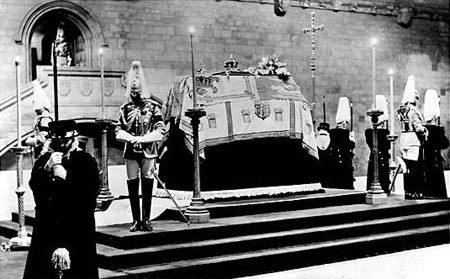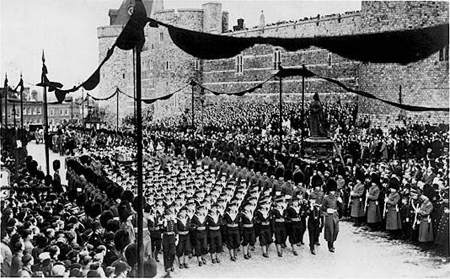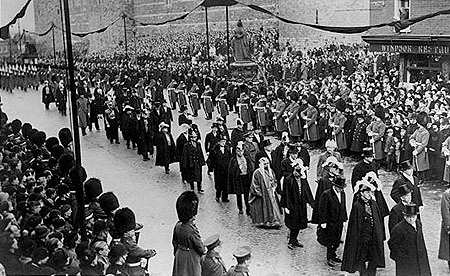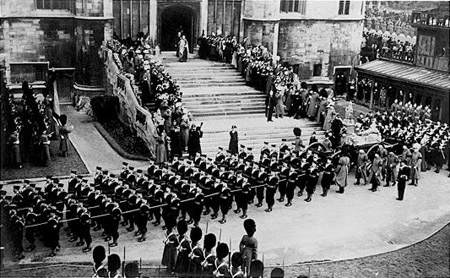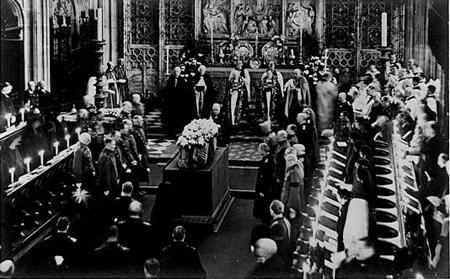
Rule Britannia, Britannia rules the waves!
Britons never shall be slaves!

His Majesty King George V
King of the United Kingdom of Great Britain and Ireland and of the British Dominions beyond the Seas, Defender of the Faith, Emperor of India
King of the United Kingdom of Great Britain and Ireland and of the British Dominions beyond the Seas, Defender of the Faith, Emperor of India
CABINET
Time: January 1936

Rt. Hon. Stanley Baldwin, M.P. – Prime Minister, First Lord of the Treasury, Minister of the Civil Service of the United Kingdom of Great Britain and Northern Ireland, Leader of the House of Commons
The Prime Minister's main responsibilities include setting the direction of the government, appointing members of the Cabinet, coordinating the activities of the Cabinet and government departments, participating in ceremonial occasions, and being the 'face' of the government in the UK and abroad. The Leader of the House of Commons is a member of the Cabinet of the United Kingdom who is responsible for arranging government business in the House of Commons.

Rt. Hon. James Ramsay MacDonald, M.P. – Lord President of the Council
The Lord President of the Council is a British cabinet position, the holder of which acts as Presiding officer of the Privy Council. His principal responsibility is to preside at meetings of the Privy Council, at which the British monarch formally Assents to Orders-in-Council.

Rt. Hon. Neville Chamberlain, M.P. – Chancellor of the Exchequer
Chancellor of the Exchequer is the government minister responsible for financial matters
Rt. Hon. Viscount Hailsham, M.P. – Lord Chancellor
The Lord Chancellor is the de facto chairman of the House of Lords, the head of the Judiciary, and the head of the Lord Chancellor’s department of state, as the head of which he sits in the cabinet.
Rt. Hon. Sir John Simon, G.C.S.I., K.C.V.O., O.B.E., K.C., M.P. – Secretary of State for the Home Department, Deputy Leader of the House of Commons
The Secretary of State for the Home Department (the Home Secretary) is the chief government minister responsible for law and order in the United Kingdom, including policing, the criminal justice system, the prison service, internal security, and matters of citizenship and immigration.

Rt. Hon. Robert Anthony Eden, M.C., M.P. – Secretary of State for Foreign Affairs
The Secretary of State for Foreign Affairs (the Foreign Secretary) is responsible for the foreign affairs and diplomatic service of the United Kingdom.
Rt. Hon. Viscount Halifax, K.G., G.C.S.I., G.C.I.E., T.D. – Lord Privy Seal, Leader of the House of Lords
Lord Privy Seal is one of the traditional sinecure offices in the British Cabinet. Though one of the oldest offices in government anywhere, since it has no particular function the office has generally been used as a kind of Minister without Portfolio. The Leader of the House of Lords is responsible for overseeing the organisation of government business in the House of Lords and advises the House on matters of procedure, drawing the Lord Chancellor's attention to breaches of order.
Rt. Hon. Malcolm John MacDonald, M.P. – Secretary of State for Dominion Affairs
Rt. Hon. William George Arthur Ormsby-Gore, M.P. – Secretary of State for the Colonies

Rt. Hon. Alfred Duff Cooper, D.S.O., M.P. – Secretary of State for War
Most Hon. The Marquess of Zetland, G.C.S.I., G.C.I.E. – Secretary of State for India
Rt. Hon. Viscount Swinton, G.B.E., M.C. – Secretary of State for Air
Rt. Hon. Walter E. Elliot, M.C., M.P. – Secterary of State for Scotland
Rt. Hon. Walter Runciman, M.P. – President of the Board of Trade

Rt. Hon. Sir Samuel Hoare, Bt, G.C.S.I., G.B.E., C.M.G., M.P. – First Lord of the Admiralty
Rt. Hon. Sir Thomas Walker Hobat Inskip, C.B.E., K.C., M.P. – Minister for the Co-ordination of Defence
Rt. Hon. William Shepherd Morrison, M.C., K.C., M.P. – Minister of Agriculture and Fisheries
Rt. Hon. Oliver Frederick George Stanley, M.C., M.P. – President of the Board of Education
Rt. Hon. Sir H. Kingsley Wood, M.P. – Minister of Health
Rt. Hon. Alfred Ernest Brown, M.C., M.P. – Minister of Labour
Rt. Hon. The Earl Stanhope, K.G., D.S.O., M.C. – First Commissioner of Works

Rt. Hon Leslie Hore-Belisha, M.P. – Minister of Transport
M.C. – Military Cross
M.P. – Member of Parliament
K.C. – King’s Counsel
K.C.V.O. – Knight Commander of the Victorian Order
G.C.S.I. – Knight Grand Commander of the Order of the Star of India
G.B.E. - Knight or Dame Cross of the Order of the British Empire
C.B.E. - Commander of the Order of the British Empire
O.B.E – Officer of the Order of the British Empire
K.G. – Knight Companion of the Order of the Garter
G.C.I.E. – Knight Grand Commander of the Order of the Indian Empire
T.D. – Territorial Decoration
D.S.O. – Companion of the Distinguished Service Order
C.M.G. – Companion of the Order of St. Michael and St. George
Bt - Baronet
Last edited:




